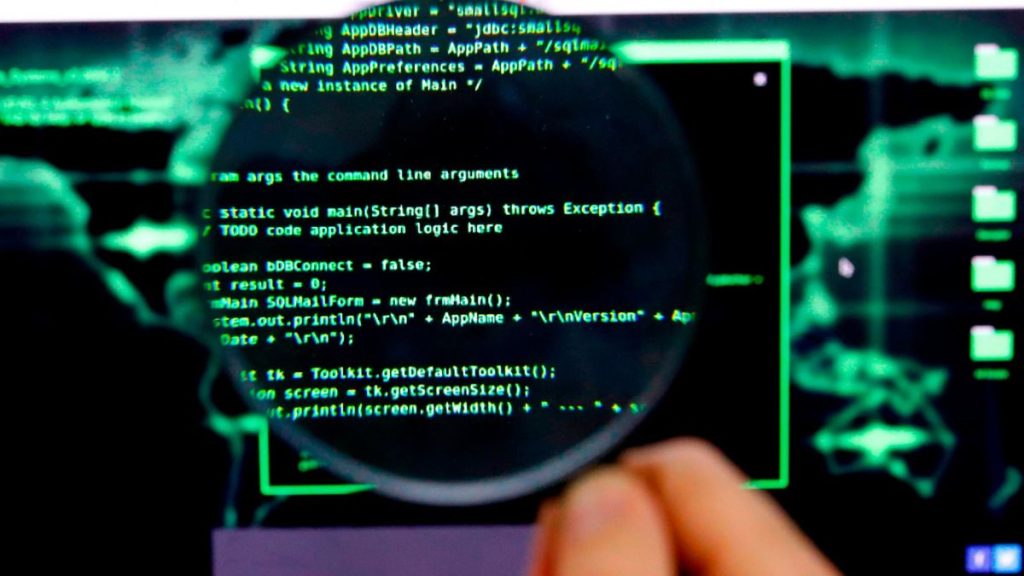
Justin Trudeau said hacking efforts that temporarily disabled the Prime Minister’s Office and Senate websites are bids by Moscow to undermine Canadian support for Ukraine, and he played down suggestions in leaked Pentagon documents that Russian cyberattacks inflicted damage on a Canadian energy company.
The leaked documentssay a Russian hacking group working with Russia’s spy agency claimed earlier this year to have disrupted operations at a Canadian natural-gas pipeline.
In a carefully phrased statement that did not divulge much detail, Mr. Trudeau said any such attacks did not cause physical damage.
“In regards to the reports of cyberattacks against Canadian energy infrastructure, I can confirm that there was no physical damage to any Canadian energy infrastructure following cyberattacks,” Mr. Trudeau told reporters at a news conference in Toronto, where he was hosting Ukrainian Prime Minister Denys Shmyhal.
National security experts noted that Mr. Trudeau’s statement only mentioned physical damage and didn’t address economic damage. The Pentagon documents say, among other things, that Russia-based cyber actors claimed to have compromised a Canadian internet protocol address associated with a Canadian gas pipeline firm.
The hackers “claimed that sufficient damage had been done to cause profit loss to the company,” the documents say. The Globe and Mail has been unable to independently verify the allegations in the documents.
There are 577,000 kilometres of natural gas transmission, distribution and service pipelines in Canada, according to the Canadian Gas Association. Tim Egan, president of the association, which represents the natural-gas delivery industry, did not have any comment on Mr. Trudeau’s statements Tuesday.
Early on Tuesday, the Prime Minister’s Office website was inaccessible. On Tuesday afternoon, it resumed proper functioning. Similarly, on Monday the Senate of Canada website temporarily stopped working for a number of hours. A pro-Russian hacking group claimed credit for the Senate attack later in the day.
Asked about this, the Prime Minister said such attacks from Moscow are to be expected.
“As you know, it’s not uncommon for Russian hackers to target countries as they are showing their steadfast support for Ukraine, as they are welcoming Ukrainian delegations, or leadership, to visit. So the timing isn’t surprising,” Mr. Trudeau said.
“But in case anyone was wondering, Russia being able to bring down an official government of Canada webpage for a few hours is in no way going to dissuade us from our unshakable support of Ukraine.”
Pierre-Alain Bujold, a spokesperson for the Privy Council Office, an agency that among other things functions as the bureaucratic arm of the Prime Minister’s Office, declined to say how long the PMO website was down on Tuesday.
The Senate was similarly tight-lipped. “Details pertaining to the Senate’s IT security are confidential for security reasons,” spokesperson Alison Korn said.
Mr. Trudeau met with Ukraine’s Mr. Shmyhal Tuesday and announced more military aid for Kyiv, which is planning a spring-summer counteroffensive against Russia. The new donations include 21,000 assault rifles and more than 2.4 million rounds of ammunition.
The Communications Security Establishment, Canada’s electronic eavesdropping agency, which is also responsible for protecting the federal government from cyberattacks, said the attacks being reported against websites are similar to distributed denial-of-service attacks other countries have experienced while hosting visits from Ukrainian government officials. Such attacks overwhelm websites by inundating them with internet traffic.
“While these incidents draw attention, they have very little impact on the systems affected,” CSE spokesperson Robyn Hawco said in a statement.
She said on any given day CSE’s defensive systems “can block anywhere from three to five billion malicious actions targeting government of Canada networks.”
The leaked documents, purportedly collected by American signals intelligence – a term for electronic interception of conversations – also say a Kremlin-aligned hacking group was being directed by Moscow’s Federal Security Service (FSB) to maintain access to Canadian gas infrastructure and await “further instruction.”
The pro-Russian hacking group, known as Zarya, shared screenshots with FSB officers and claimed to have the capacity “to increase valve pressure, disable alarms, and initiate an emergency shutdown of an unspecified gas distribution station” in Canada, the leaked documents say.
The documents also say Russian operatives were monitoring Canadian news reports for indications of an explosion, and that the hackers’ intention “was not to cause loss of life, but loss of income for Canadians.”
Stephanie Carvin, an associate professor of international relations at Carleton University’s Norman Paterson School of International Affairs and a former national-security analyst, noted that Mr. Trudeau didn’t rule out economic damage when discussing cyberattacks on Canadian natural gas infrastructure. “That intelligence report could be correct,” she said of the leaked Pentagon documents.
Dennis Molinaro, a professor at Ontario Tech University and former national-security analyst, said Mr. Trudeau’s comments leave a number of questions unanswered about cyberattacks targeting Canadian energy infrastructure, including whether the Communications Security Establishment was enlisted to address them.
Canada has given Ukraine more than $8-billion in financial, military and humanitarian aid to date.
On Tuesday, Mr. Trudeau and Mr. Shmyhal signed an updated version of the Canada-Ukraine free-trade agreement, and a Youth Mobility Agreement, which will open up new opportunities for work and travel between the two countriesonce travel to Ukraine is safe.
During Mr. Shmyhal’s visit to Canada, Saskatoon-based Cameco and Ukraine’s state-owned Energoatom signed a major supply contract, in which Cameco will provide the necessary uranium to meet Ukraine’s nuclear fuel needs until 2035.
SOURCE: GLOBEANDMAIL